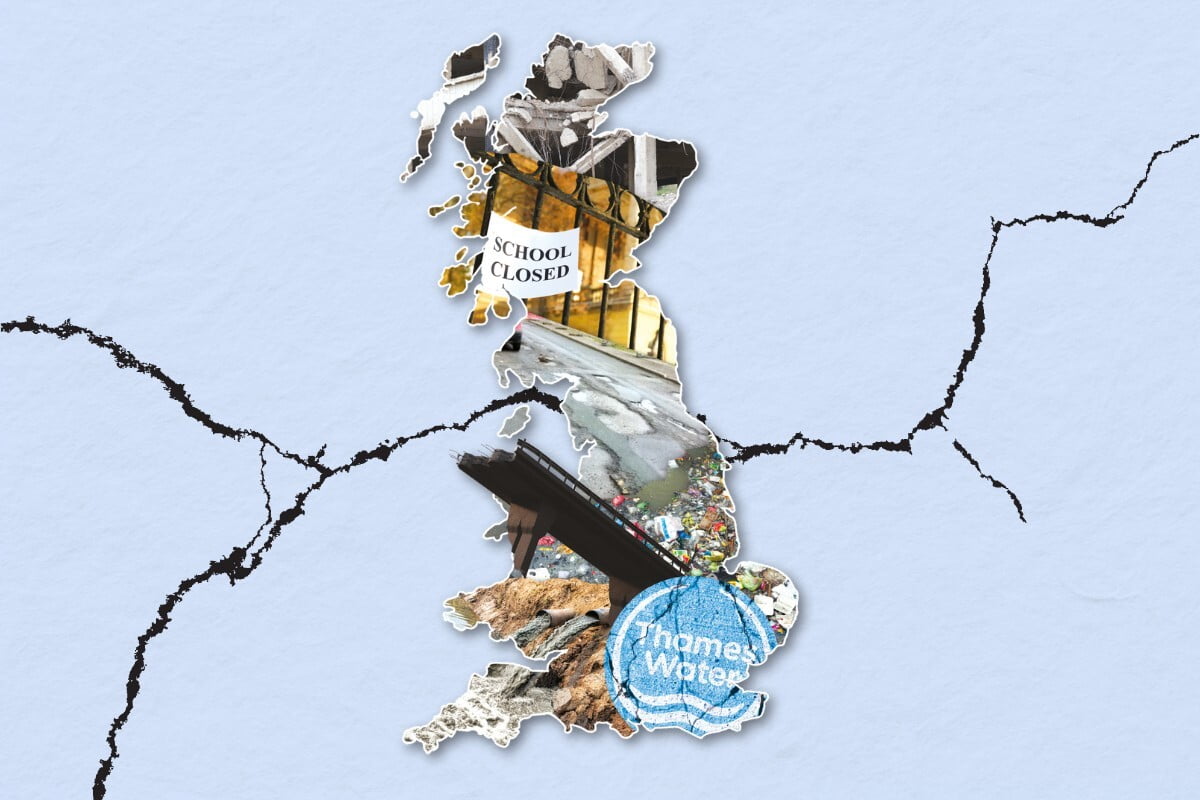With the economy in the doldrums, and the state’s coffers looking rather bare, Starmer and his associates have announced a hail-Mary panacea to fix the UK’s ever-diminishing relevance. The answer, according to Starmer, lies in AI.
In a speech given earlier this month, on 13 January, the PM announced £14bn of investment in AI, declaring that this would create new jobs, raise productivity, and mend Britain’s ailing public services.
This ‘AI Opportunities Action Plan’ is part of Starmer’s so-called ‘great reset’, which he unveiled late last year in hopes of correcting Britain’s course after years of rudderless drift, and to deliver the economic and political stability that his party promised after 14 years of Tory rule.
Of course, to become an “AI powerhouse” means competing with the USA and China. But Starmer’s measly £14bn is dwarfed by the $380bn invested by the US, and the $1.4 trillion – that’s 100 times more than Britain! – that China plans to invest in the next six years.
Hollowed-out husk

Becoming a “world leader” in AI – something the last five prime ministers have pledged – takes a lot more than grandiose words and promises. Vague statements about “tech hubs” are simply not enough.
For British capitalism to become the “AI superpower” Starmer envisions, there needs to be favourable conditions for businesses to grow. But thanks to years of short-sighted self-sabotage by the British ruling class, coupled with a crisis-ridden world economy, those conditions simply don’t exist.
Investment in industry, infrastructure, and education has been neglected for decades, in favour of financial speculation and gambling in the City. This has left Britain without the foundations – of skills, supply chains, and startups – in place for the successful, widespread absorption and application of new, frontier technologies.
Tech investors would much rather send their money to rising economies like China, than the hollowed-out husk that is the British economy.
Who benefits?
Even if we take Starmer at his word that an AI renaissance is around the corner, will this actually have a positive effect for ordinary people, as Starmer claimed throughout his speech?
A recent survey revealed that 77 percent of workers say the introduction of AI into their workplace has had a detrimental effect on their jobs, resulting in increased burnout.
What’s more, a recent think-tank study into this plan suggested that around eight million jobs could potentially fall under risk with the wholesale ‘AI revolution’ that Starmer touts.
Under capitalism, investment in technology like AI is only done to squeeze extra surplus value from workers, and thereby increase profits for the capitalists. In the case of AI, it is most often employed to deskill jobs that traditionally required training, and to axe positions altogether.
This means lower wages, higher exploitation, and job losses for workers. No wonder profit-hungry bosses and cash-strapped government departments are enamoured at the prospect of artificial ‘workers’ who require very little upkeep.
One use for AI cited by the government, for example, is using AI to help teachers plan lessons. But a faulty AI companion will be of little use to a teacher in a school that has been gutted by years of austerity, is falling apart due to dodgy concrete, and whose pupils can’t concentrate due to hunger and malnutrition.
Similarly, newfangled algorithms aren’t going to be of much use to nurses forced to administer care to dying patients in corridors and car parks, for lack of available beds.
Expropriate the billionaires!
With this snake-oil AI scheme, Starmer is making a virtue of necessity – presenting what are essentially penny-pinching measures as the saving grace of a decaying system. Simply put, this is just austerity with a shiny new label.
AI does have the potential to be a genuinely progressive force for humanity, cutting working hours and raising productivity with no loss of jobs or pay, as well as freeing us from more monotonous tasks.
But this potential can only be realised if we expropriate the bosses and billionaires – who only use AI to line their own pockets – and utilise this technology as part of a harmonious, rationally-planned socialist economy.
Some comradely advice
I recently read in the New Statesman that:
“Keir Starmer gave a speech in which he declared that AI could “radically improve our public services” and make government more efficient…
“The government quietly published a contract awarded to consultants PwC for £4,148,645 to start implementing part of its AI strategy.”
Well, if our esteemed Prime Minister wants to achieve the capitalist holy grail of ‘cheap government’, I’d be happy to save him the four million and offer him some free advice, out of the kindness of my own heart.
Sir Keir, if you really want to get the state’s finances back on track, I’d recommend taking a leaf out of the Paris Commune’s book.
Start by abolishing the armed forces. The last time I checked, we weren’t at war, so this is really quite a wasteful expense.
Next step: get rid of the upper echelons of state bureaucracy. All these top civil servants and salaried consultants don’t seem to be doing much of a good job anyway. Why not let ordinary people give this whole government thing a go, free of charge?
We can organise our work in the form of super-efficient, accountable, local, participatory councils – or ‘soviets’ for short.
With all the money you’d save, you could sort out that £22bn ‘black hole’ you keep moaning about. You might even have enough left over to treat yourself to a new designer suit and a day out at the footy.
On the downside, I don’t think your friends in the City would be very happy about the whole plan. But you’re already in their bad books after that stinker of a Budget. Why not give it a shot?
Jack Tye Wilson






